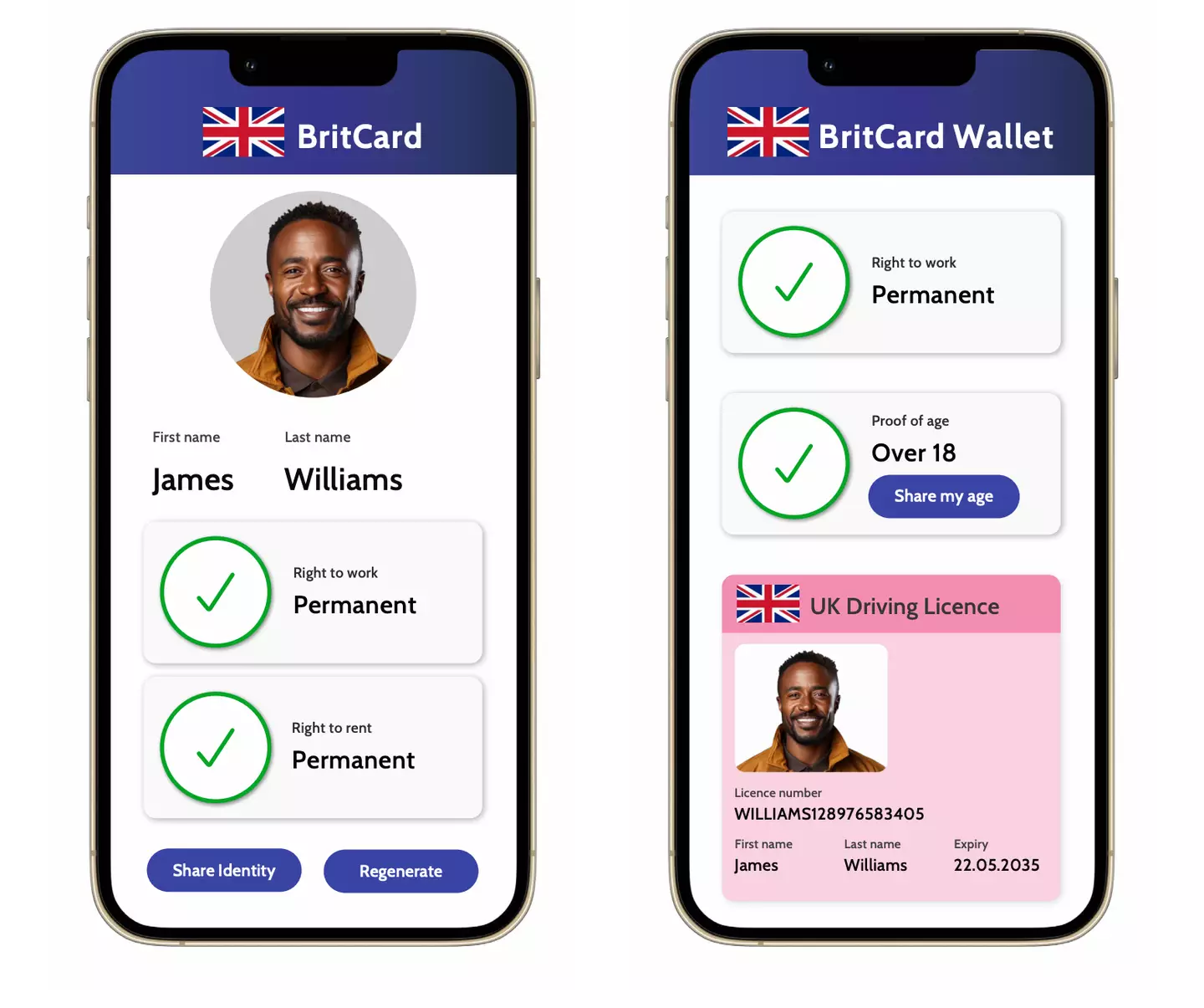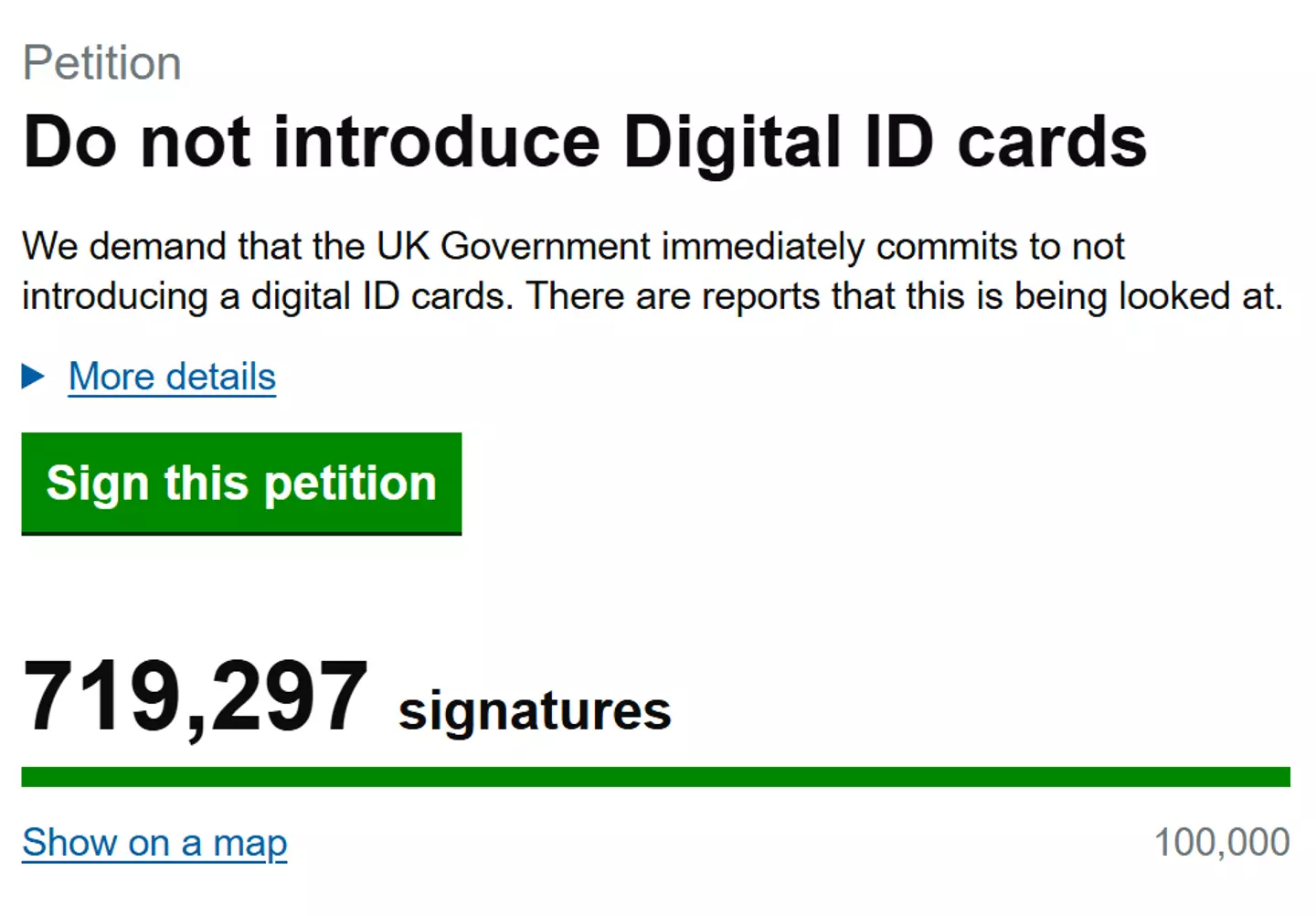Keir Starmer’s Bold Move: The BritCard Digital ID No UK Worker Can Refuse—What It Means for You
So, the UK government’s dusting off a relic from the archives — a digital ID card scheme, but with a 21st-century twist. Imagine this: no mandatory ID cards since World War II, yet here we are, staring down the barrel of a ‘compulsory’ digital badge if you want to punch the clock. They say it ain’t officially mandatory, but if you fancy getting paid, better have one in your digital wallet. It’s like they’re saying, “You can refuse the ID… but then, no job for you!” Classic. After multiple flops in the 90s and early 2000s, Starmer’s new pitch is stirring the pot big time, with folks buzzing and backing petitions faster than you can say “passport control.” Is this the dawn of convenience or a surveillance saga? Let’s unpack what this digital BritCard means for us and why it’s got the nation divided.
The government have officially announced their plans to introduce a digital ID card scheme, which will be ‘compulsory’ for anyone wanting to get a job in the UK.
There hasn’t been a mandatory ID card introduced to the UK since the Second World War, and while government ministers say this one won’t officially be mandatory, you will need it if you want to work.
Multiple attempts to bring in some kind of ID card have been made over the years, with John Major’s Conservatives trying it in 1995 and Tony Blair’s Labour government bringing one in before that scheme was scrapped in 2010.
While many other countries have an official ID card, the idea has long been controversial in the UK, and Prime Minister Sir Keir Starmer’s announcement today (26 September) has generated a lot of backlash.
The government’s goal is to bring in the digital ID before the end of the current parliament, so it’s something Brits will need to prepare for if it goes ahead.
The UK government announces digital ID card scheme

The prime minister claims it’ll help tackle illegal immigration and people getting jobs when they don’t have a right to work in the UK (Alberto Pezzali – WPA Pool/Getty Images)
The prime minister said: “For too many years it’s been too easy for people to come here for people to come here, slip into the shadow economy and remain here illegally because, frankly, we’ve been squeamish about saying things that are clearly true.”
Starmer said it was a ‘simple fact that every nation needs to have control over its borders’ in a speech as he laid out his case for the need to have a digital ID.
“This government will make a new free-of-charge digital ID mandatory for the right to work by the end of this parliament,” he said.
“You will not be able to work in the United Kingdom if you do not have digital ID. It’s as simple as that.”
A consultation will be launched to work out how the digital ID could work for the elderly, disabled and those who don’t have access to the technology required to make a scheme like this work.
It will be mandatory for work, but the government insists you will not be asked to produce it in public.
How will the BritCard work?

The digital ID will be mandatory if you want to work in the UK (Labour Together)
Under the scheme, Brits can get a digital ID on a smartphone app, which will display basic information about them, along with whether they have the right to do certain things, such as work in the UK.
It’ll have your name, date of birth, your nationality, right of residence and a photo of you.
When using the ID, it gets checked against a central database, which is meant to verify that the ID is legitimate and the person is who they claim to be when they’re starting a new job.
A physical copy of the card could be made available for people who don’t want to use their smartphone or are unable to do so because they don’t have one.
Companies found not to have properly checked whether the people they employ are legitimate will face the same punishments as before.
Culture Secretary Lisa Nandy has said ‘we’re not envisioning for a moment that this will be mandatory’, but it will be compulsory if ‘you want to work in this country’.
Businesses hiring people are already supposed to check they have a National Insurance number, but once the digital ID scheme comes into force, that will no longer be enough.
Why is the government doing this?

Culture secretary Lisa Nandy said the government had ‘no intention of pursuing a dystopian mess’, some opponents of the digital ID think otherwise (Carl Court/Getty Images)
Starmer claims this will be an ‘enormous opportunity’ for the UK, which will help crack down on illegal migration and prevent jobs from going to people who don’t have the right to work in Britain.
By reducing the ability for people entering the UK illegally to earn money, the theory is that it should reduce the ‘pull’ factors which would lead someone to try to enter the UK.
He said: “I know working people are worried about the level of illegal migration into this country. A secure border and controlled migration are reasonable demands, and this government is listening and delivering.
“Digital ID is an enormous opportunity for the UK. It will make it tougher to work illegally in this country, making our borders more secure.”
The prime minister also claimed it would make things more convenient for the average Brit, claiming that a digital ID card would ‘offer ordinary citizens countless benefits’ such as the ability to prove your identity quicker when trying to access services ‘rather than hunting around for an old utility bill’.
Nandy said that digital ID cards would be better than the UK’s current setup, as the current checks do not require a photo ID, and suggested it could help combat identity theft.
She said: “They’re not linked, for example, to photo ID, so you can’t verify that the person in front of you is actually the person whose national insurance number that you’re looking at.
“We’ve seen a real rise in the amount of identity theft and people losing documents and then finding that their identity has been stolen.”
Opposition to digital ID cards

Clearly this idea isn’t everyone’s cup of tea (petition.parliament.uk)
The digital ID card scheme has already been received rather poorly, and while there are plenty of countries that have something like this, it seems as though the UK has received a bit of reaction to the idea of an ID card.
Yesterday (25 September), a petition to block the scheme had amassed over 130,000 signatures, earlier today (26 September) it had climbed to more than 550,000 and now it has surged beyond 700,000.
By the time you read this, it’ll likely be even higher. Clearly, for some, this is a deeply unpopular idea.
Various political figures have voiced their opposition to the government’s plans as well, with the Liberal Democrats saying that they would not support a scheme where people are ‘forced to turn over their private data just to go about their daily lives’.
Conservative leader Kemi Badenoch called it a ‘gimmick that will do nothing to stop the boats’, while Reform UK claimed it was a ‘cynical ploy’ to trick Brits into thinking the government was handling immigration.
Northern Ireland First Minister Michelle O’Neill said it was ‘ludicrous and ill-thought out’, with the Sinn Féin politician saying it was ‘an attack on the Good Friday Agreement and on the rights of Irish citizens in the North of Ireland’.
Auto Amazon Links: No products found.













Post Comment